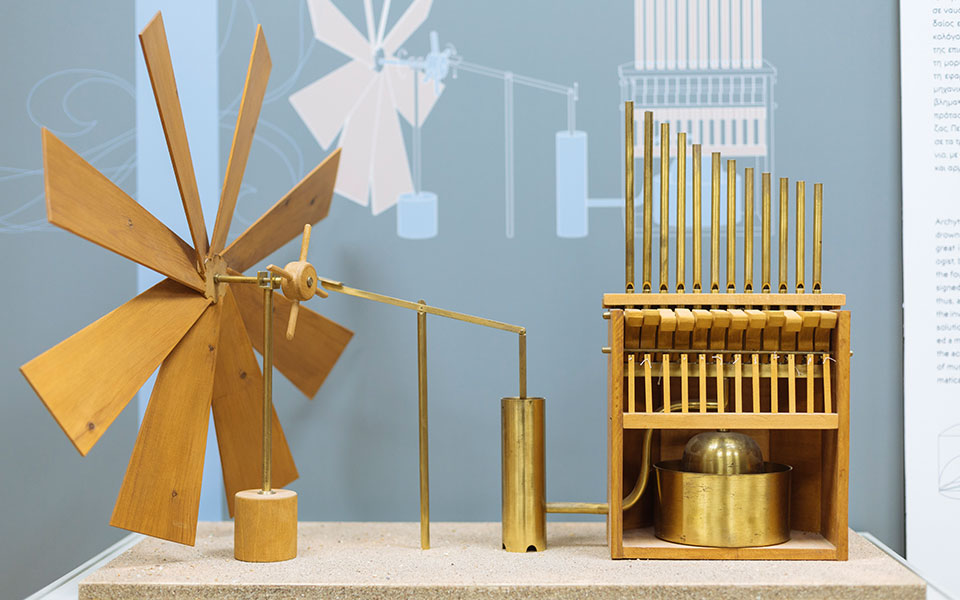One of the first alarm clocks ever created relied on water – although not, as you might think, to splash the sleepy user into wakefulness.
Invented in the 5th century by the ancient Greek philosopher Plato, it bore little resemblance to today’s clocks, being about as tall as an adult person and featuring large clay pots, the one suspended above the other. Water from one pot would drip out of a small hole in the bottom, slowly filling a second. This pot was cleverly equipped with a siphon, meaning that once the water reached a certain level, all of it would pour out at once into a third pot. This one had narrow openings that would create a loud whistling sound as the air inside was pushed out by the sudden inflow of water.
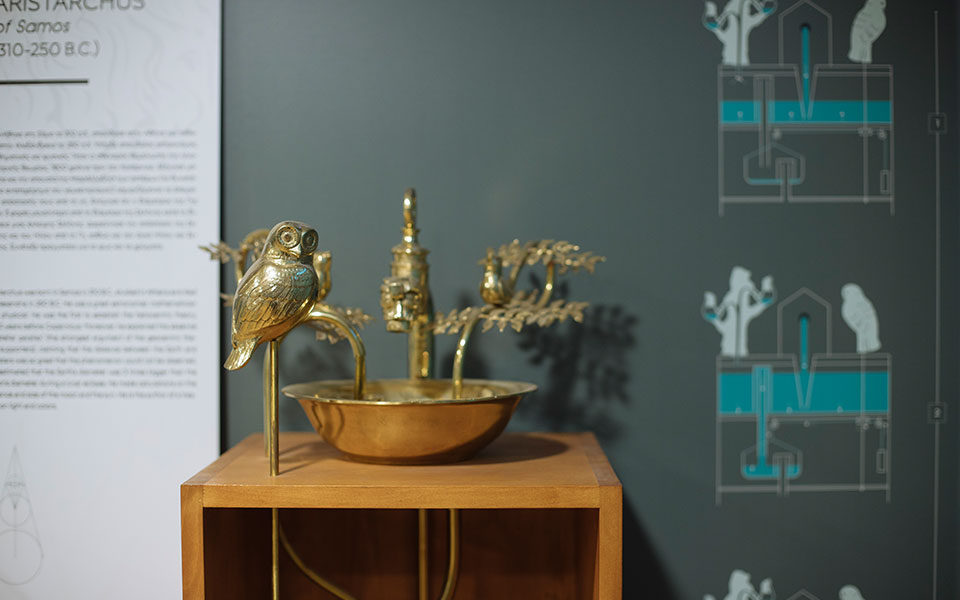
© Nicholas Mastoras
I would have certainly found that piece of information fascinating enough had I read it in a book, but after having seen a working replica seen up close, it is certain that I will remember it for ever. “In how much time would you like Plato to wake up?” I am playfully asked by Kostas Kotsanas, the founder of the Museum of Ancient Greek Technology which opened just this month in the center of Athens. He sets the ‘timer’ accordingly and in two minutes a deafening whistle rouses us from our idle study of this unusual contraption.
Kotsanas has created a thoroughly impressive body of work in his efforts to study and popularize the technological prowess and ingenuity of the ancient Greeks. In total he has brought to life roughly 500 devices that represent the cutting edge of ancient Greek technology – these are fully functional, life-sized replicas of ancient Greek innovations.

© Nicholas Mastoras
Made with the same methods and materials as the originals, many of these devices have already traveled across the globe as parts of temporary exhibitions hosted at important museums, institutions and universities. In Greece, Kotsanas has founded another two museums, the Museum of Ancient Greek Technology in Katakolo on the western coast of the Peloponnese, and the Archimedes Museum in Ancient Olympia.
Now the Athens museum brings many of these inventions to the Greek capital. Here, one can see over 100 devices; even today many seem cutting-edge or even futuristic. They are arranged in 24 different categories, such as Telecommunications, Steam Power, and Computation – including even Automatic Navigation and Robotics.
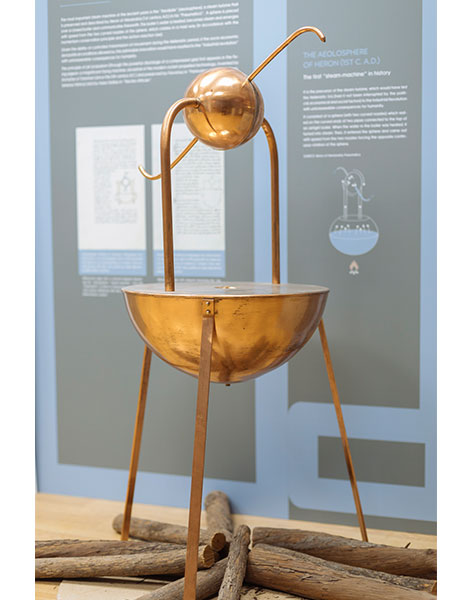
© Nicholas Mastoras
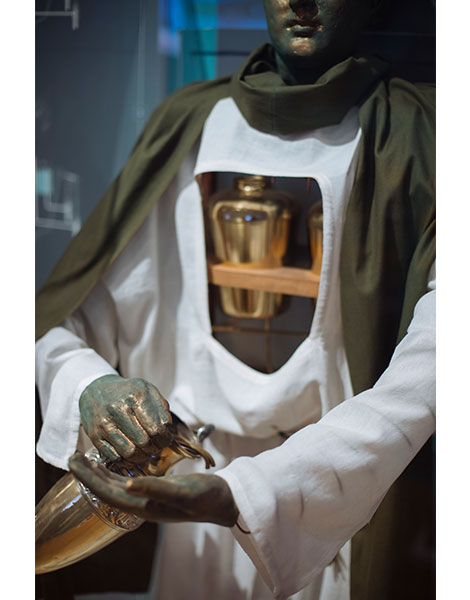
© Nicholas Mastoras
An inspired ‘re-inventor’
Kotsanas himself studied at the University of Patras, in the Department of Mechanical Engineering and Aeronautics. He began studying ancient Greek writings at the recommendation of a professor of his, Andreas Dimarogonas, himself an important figure in the field of mechanical design and vibrations. And so from his student days he began creating with his own hands – as he still does today – ancient elevators, clocks, odometers and games – exactly as they are described in ancient texts.
“The ancient Greeks had the same needs as us. They didn’t just invent catapults that were needed for campaigns, but also objects that were used simply for entertainment,” Kotsanas explains right before I see what he means with my own eyes.
“Wine or water?” a 3rd century BC waitress would ask. The metal jug that she held would ‘hear’ the answer and deliver the desired drink. How? The container had two chambers and two air openings. By subtly blocking one opening or the other with her thumb, she could determine which drink would pour out of the jug.
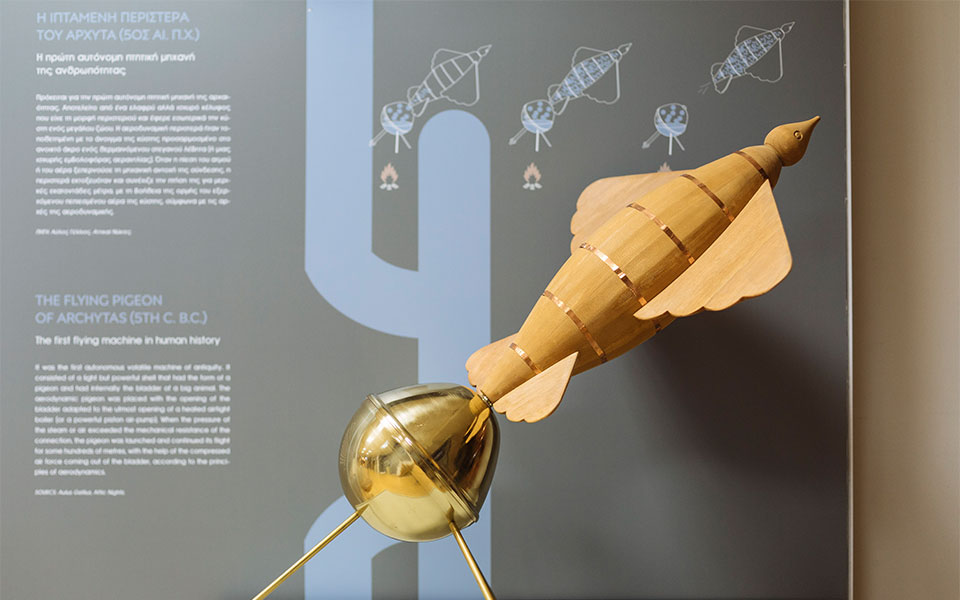
© Nicholas Mastoras
Its inventor, Philo of Byzantium (3rd century BC), however did not stop there. He created the world’s first robot – a human-shaped contraption that would dispense wine when a cup was placed in its hand – which was once placed in the market of Alexandria. Automatic vending machines dispensing blessings were also placed outside of certain temples, as described in the writings of Hero of Alexandria in the 1st century AD.
Hero of Alexandria also refers to a progenitor of today’s TV sets, dating to the 3rd century BC, which operated with mobile miniature objects, sound and light – a replica of this also exists in the museum. “You could watch, let’s say, the soap opera of the time which was the Trojan War,” I am told by Kotsanas, who has a unique way of making the tour thoroughly entertaining.
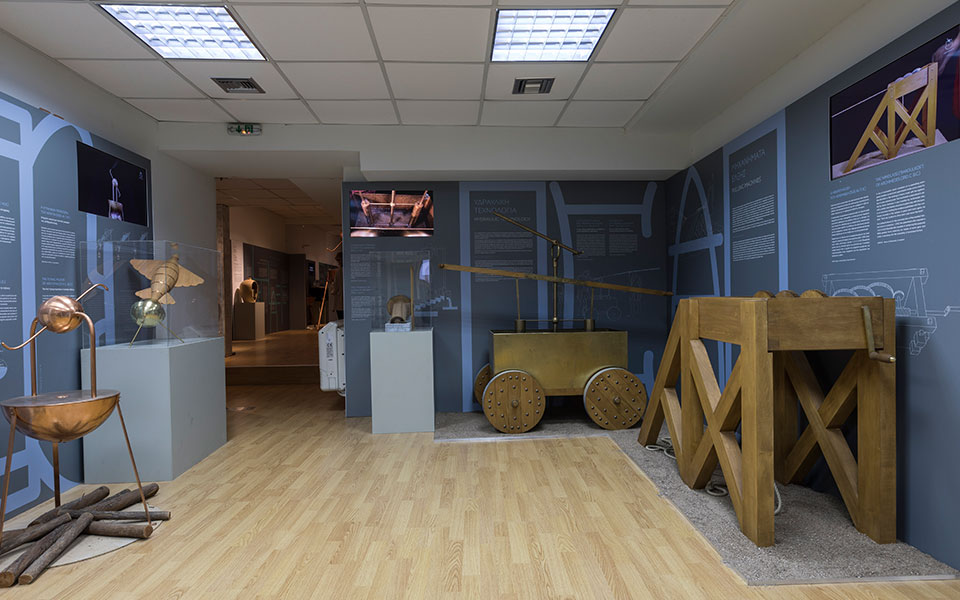
© Nicholas Mastoras
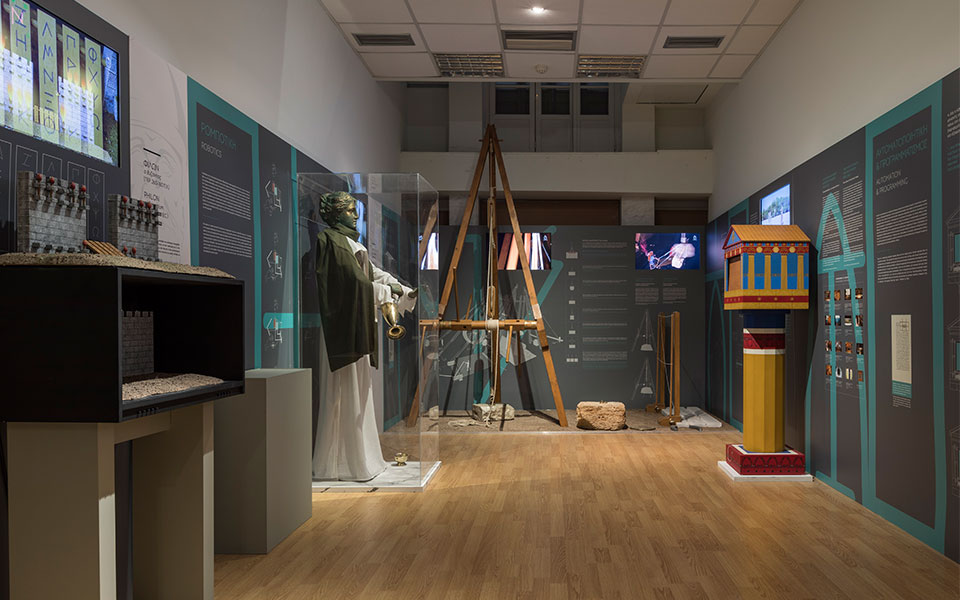
© Nicholas Mastoras
At the museum there is also a copy of the Antikythera Mechanism, the oldest known analog computer. The original device has already been the subject of many museum exhibitions, but here visitors can turn the mechanism and work out for themselves the movements of the planets, Zodiac cycle and mobile feast days of the ancient Greeks.
Other impressive inventions include: the complex mechanism that was hidden underground in the courtyards of temples to create a ‘miracle’ whenever a sacrifice was made at the altar; the flying dove of Archytas (the first autonomous flying machine); an ancient firefighting pump, functionally the same as those used up until about a century ago; different medical tools; kitchen gadgets and more.
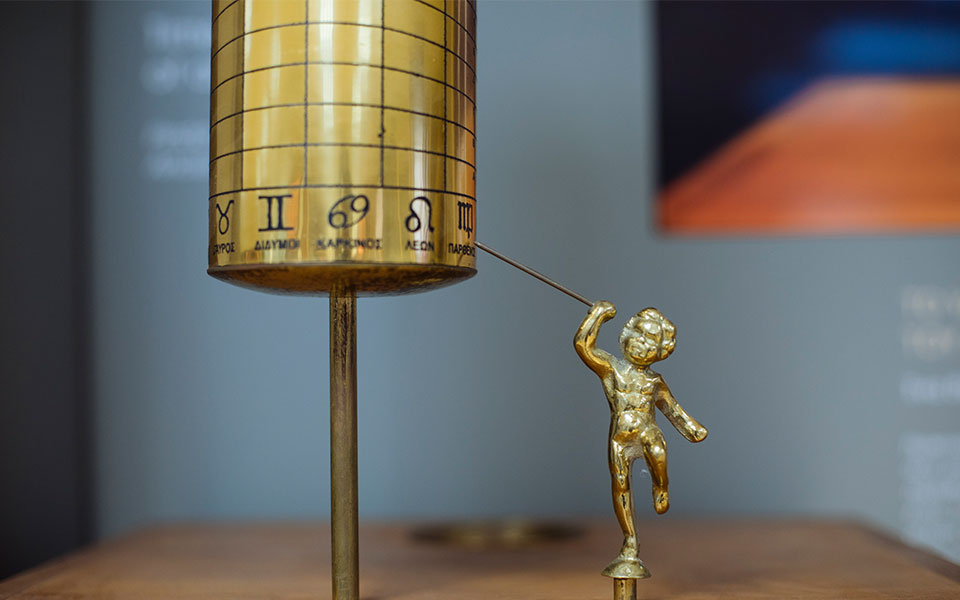
© Nicholas Mastoras
An additional floor of the museum will soon open to the public that is dedicated to ancient musical instruments, with exhibits such as replicas of the first piano and the first drum set in the world. The museum is also planning to create temporary exhibitions around different themes such as ancient games and toys. And in the small gift shop you will find great brain-stimulating games and puzzles for young and old.
To find the museum, housed in a tall Art Nouveau building on Pindarou Street, keep an eye out for a discreet sculpture with birds that sing – yet another ancient invention. Head in, and if you don’t run into Kostas Kotsanas, you will definitely find one of his sons – Giorgos, Panayiotis and Marios who have picked up their father’s passion and are continuing his lifelong work.

